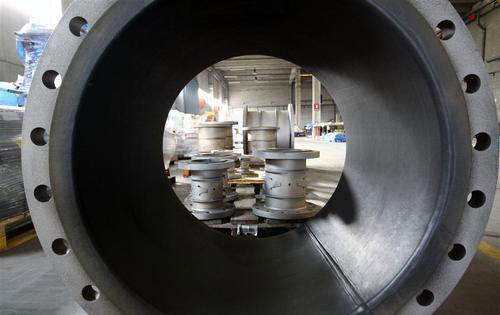
What is Rubber Lining?
Rubber lining is a rubber sheet or membranes used for protection from corrosion in aggressive chemical environments. There are several rubber Lining applications some of which include resistance to acid, chemicals and alkalis, abrasion resistance, infect protection.
Uses of Rubber Linings
Rubber linings are used in a variety of applications like the chemical, mining, fertilizer, electrochemical, steel, transportation and environment sectors. Rubber linings are used for protection against corrosion and metal and chemical impurities. Using the most advanced technology, the linings are produced in different thicknesses to be used in a variety of industrial situations. Available in a variety of rubber types, the various uses of linings are as follows:
Rubber linings are used to extend equipment life
Linings also provide solutions for the:
Toughest abrasion and corrosion applications.
Extreme chemical environments.
Severe wear situations.
Types of Rubber for Linings
Both the types of rubber- natural rubber and synthetic rubber- are used for making different varieties of rubber linings. The type of rubber depends upon the purpose and application of rubber lining.
Natural Soft Rubber Linings
Hard Rubber Linings
Synthetic Rubber Linings
Applications of Rubber Linings
Rubber Lining of Tanks: Rail Car Tanks, Elutriation tank by acid, Removal tank of grease, Plating tank, Bottom tank.
Mining Wear Parts.
Chemical industry: Storage tanks of hydrochloric acid and sodium hydroxide, Reaction vessel, Heat exchanger, Filtration equipment, Condenser, Tank lorry, Piping, Vibration mill machine, and others.
Unvulcanised linings for shop and field use.
Pre-vulcanised linings primarily for large erected tanks.
Self-vulcanising or chemical curing rubber sheets for repair work.
[BACK TO HOME PAGE ]






